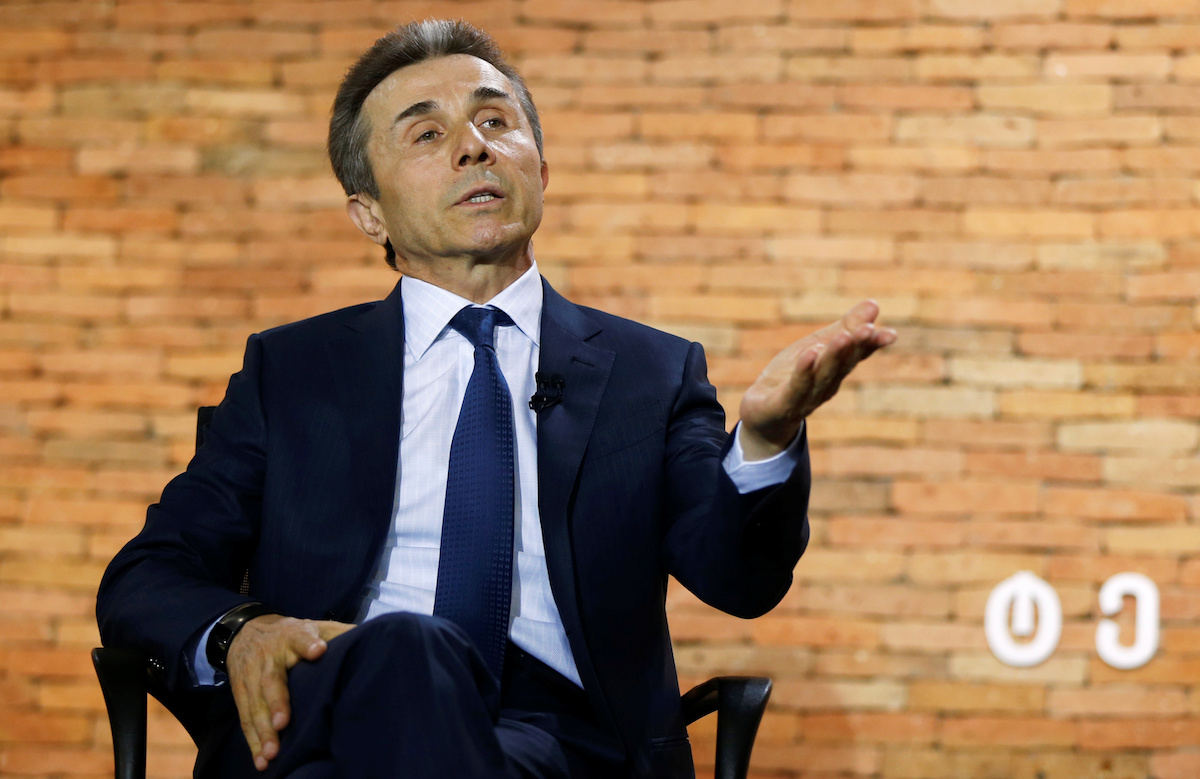Op-Ed: Georgia. The vengeance of the oligarch
The Georgian parliament, or rather, the parliamentary majority alone, voted to return former prosecutor general Irakli Shotadze to his post.
This decision is not the only case in recent history when former senior officials in Georgia have experienced a “second coming.”
In November 2019, the government, namely Bidzina Ivanishvili, the billionaire, leader of the ruling party “Georgian Dream,” and informal ruler of the country, returned Mikhail Chkhenkeli to his former post as minister of education. He had held this post in 2017-2018.
•The oligarch’s hometown – the founding legend of the Georgian Dream
•Centuries old trees – the billionaire’s latest temptation
Even earlier, former Prime Minister Irakli Garibashvili was returned to the government, though not as prime minister, but as defense minister.
This “carousel”, on the one hand, indicates that Ivanishvili suffers from a lack of loyal personnel, which forces him to go “a second time around.” However, the reappointment of Shotadze in particular has much greater symbolic and practical significance.
Irakli Shotadze resigned in May 2018 as a result of mass protests over the sensational case of Dato Saralidze, a teenager who was killed in a fight with peers in December 2017.
The murder took place in front of numerous witnesses, but after several months of the trial, the court ruled that the killer had not been identified.
The father of the victim and his supporters believed that the prosecutor’s office did not investigate the case properly and hid evidence. This was later confirmed by the parliamentary inquiry commission.
The authorities were then forced to meet the public’s demands.
The same thing happened after the riots on June 20, 2019, when parliamentary speaker Irakli Kobakhidze resigned. It was he who claimed responsibility for inviting deputy Sergei Gavrilov to the Tbilisi State Duma to participate in the Inter-Parliamentary Assembly on Orthodoxy.
As a result, when the meeting commenced, Gavrilov ended up in the chair of the speaker of the Georgian parliament, and this provoked massive protests by opposition activists and ordinary citizens, including clashes with the police.
However, it soon became clear that Kobakhidze’s resignation was simply a necessary step.
In fact, neither the ruling Georgian Dream party, nor Bidzina Ivanishvili considered Kobakhidze to be in the wrong for in inviting Gavrilov to parliament. And they are completely unconcerned about the fact that this move lead to a great confrontation and the arrest of hundreds of people, provoking the most severe political crisis in the country.
Although Kobakhidze was “punished” and removed from office, he was nevertheless present at all public meetings next to Bidzina Ivanishvili. And it was he who was entrusted with the role of the main representative and negotiator of the ruling party both domestically (meeting with the opposition) and abroad (meeting with European parliamentarians in Strasbourg).
Overall, Kobakhidze, the main player in “the Gavrilov incident,” was not only completely rehabilitated in the eyes of Ivanishvili and the Georgian Dream, but could have freely returned to the post of parliament chairman if the position had not already been occupied by the equally loyal Archil Talakvadze, and this would have created an awkward situation.
What does all this mean? Why is Ivanishvili unafraid to once again elevate these figures who have such an odious and shaky reputation—especially in light of such unprecedented criticism from Western partners?
Probably for the same reason that in November 2019, he refused to fulfill his promise to transition to a proportional system. For the same reason that one of the opposition leaders and former Tbilisi mayor Gigi Ugulava was recently arrested, at the same exact moment when the newly appointed US ambassador held a reception for Georgian politicians.
Ivanishvili and his faithful Georgian Dream made it clear to everyone in Georgia and abroad that they were not going to give up power and would do anything to preserve it.
And thus, public opinion in Georgia or criticism of the West mean nothing to them.
Whenever it is possible to maintain power under conditions of relatively democratic rule, Georgian Dream strives to do so. That is why both Shotadze and Kobakhidze were dismissed at the same time—they were taking into account the demands of the people.
However, this “game of democracy” ceased as soon it became clear that these concessions could lead them to lose power.
Breaking the promise to transition to proportional elections was a turning point.
Shotadze’s return to the chair of the prosecutor general’s office is the crown of the oligarch’s revenge. If before that someone doubted whether the authorities would go so far as falsifying the elections, repression, fabricating narratives, and crushing the independent media and any violent outbreaks, today this question is no longer standing. Yes, they will.
And if the Georgian Dream’s way of ruling is incompatible with the western status quo—all the worse for the western status quo.



















